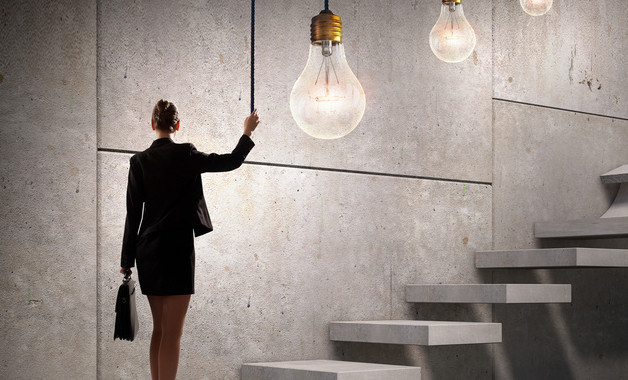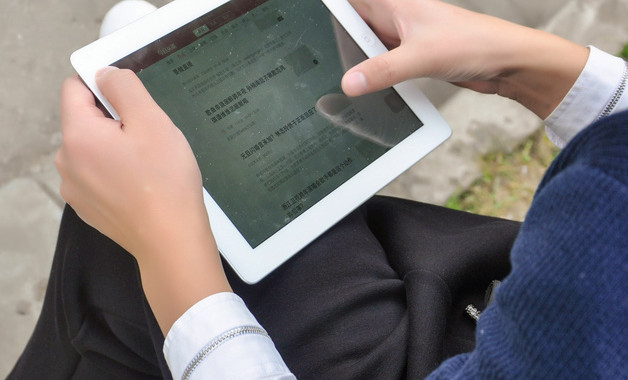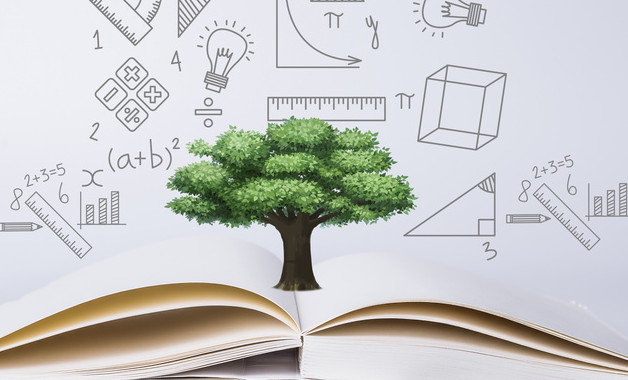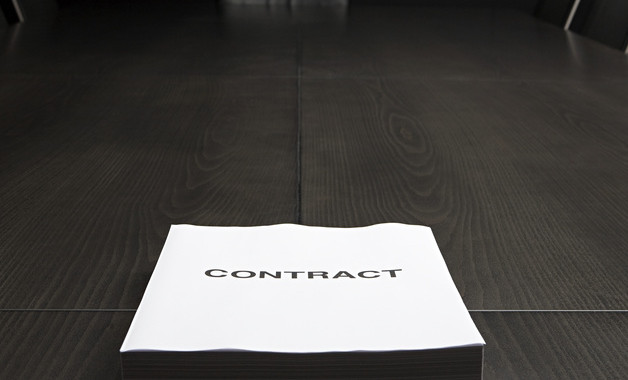
第1篇 克林顿总统英语演讲稿
以下小编整理的克林顿总统英语演讲稿,供大家参考,希望大家能够有所收获!
克林顿总统英语演讲稿
first, i'd like to thank the commission and my opponents for participating in these debates and making them possible. i think the real winners of the debates were the american people. i was especially moved in richmond a few days ago, when 209 of our fellow citizens got to ask us questions. they went a long way toward reclaiming this election for the american people and taking their country back. i want to say, since this is the last time, i'll be on platform with my opponents, that even though, i disagree with mr. perot on how fast we can reduce the deficit and how much we can increase taxes in the middle class, i really respect what he's done in this campaign to bring the issue of deficit reduction to our attention. i'd like to say that mr. bush even though i have got profound differences with him, i do honor his service to our country. i appreciate his efforts and i wish him well. i just believe it's time to change.
i offer a new approach. it's not trickle-down economics. it's been tried for 12 years and it's failed. more people are working harder, for less, 100,000 people a month losing their health insurance, unemployment going up, our economics slowing down. we can do better, and it's not tax and spend economics. it's invest and grow, put our people first, control health care costs and provide basic health care to all americans, have an education system second to none, and revitalize the private economy. that is my commitment to you. it is the kind of change that can open up a whole world of opportunities toward the 21st century.
i want a country where people, who work hard and play by the rules, are rewarded, not punished. i want a country where people are coming together across the lines of race and region and income. i know we can do better. it won't take miracles and it won't happen overnight, but we can do much, much better, if we have the courage to change.
thank you very much.
第2篇 美国克林顿总统在北京大学的演讲稿演讲范文
president clinton:
thank you. thank you, president chen, chairmen ren, vice president chi, vice minister wei. we are delighted to be here today with a very large american delegation, including the first lady and our daughter, who is a student at stanford, one of the schools with which beijing university has a relationship. we have six members of the united states congress; the secretary of state; secretary of commerce; the secretary of agriculture; the chairman of our council of economic advisors; senator sasser, our ambassador; the national security advisor and my chief of staff, among others. i say that to illustrate the importance that the united states places on our relationship with china.
i would like to begin by congratulating all of you, the students, the faculty, the administrators, on celebrating the centennial year of your university. gongxi, beida. (applause.)
as i'm sure all of you know, this campus was once home to yenching university which was founded by american missionaries. many of its wonderful buildings were designed by an american architect. thousands of americans students and professors have come here to study and teach. we feel a special kinship with you.
i am, however, grateful that this day is different in one important respect from another important occasion 79 years ago. in june of 1919, the first president of yenching university, john leighton stuart, was set to deliver the very first commencement address on these very grounds. at the appointed hour, he appeared, but no students appeared. they were all out leading the may 4th movement for china's political and cultural renewal. when i read this, i hoped that when i walked into the auditorium today, someone would be sitting here. and i thank you for being here, very much. (applause.)
i come here today to talk to you, the next generation of china's leaders, about the critical importance to your future of building a strong partnership between china and the united states.
the american people deeply admire china for its thousands of years of contributions to culture and religion, to philosophy and the arts, to science and technology. we remember well our strong partnership in world war ii. now we see china at a moment in history when your glorious past is matched by your present sweeping transformation and the even greater promise of your future.
just three decades ago, china was virtually shut off from the world. now, china is a member of more than 1,000 international organizations -- enterprises that affect everything from air travel to agricultural development. you have opened your nation to trade and investment on a large scale. today, 40,000 young chinese study in the united states, with hundreds of thousands more learning in asia, africa, europe, and latin america.
your social and economic transformation has been even more remarkable, moving from a closed command economic system to a driving, increasingly market-based and driven economy, generating two decades of unprecedented growth, giving people greater freedom to travel within and outside china, to vote in village elections, to own a home, choose a job, attend a better school. as a result you have lifted literally hundreds of millions of people from poverty. per capita income has more than doubled in the last decade. most chinese people are leading lives they could not have imagined just 20 years ago.
of course, these changes have also brought disruptions in settled patterns of life and work, and have imposed enormous strains on your environment. once every urban chinese was guaranteed employment in a state enterprise. now you must compete in a job market. once a chinese worker had only to meet the demands of a central planner in beijing. now the global economy means all must match the quality and creativity of the rest of the world. for those who lack the right training and skills and support, this new world can be daunting.
in the short-term, good, hardworking people -- some, at least will find themselves unemployed. and, as all of you can see, there have been enormous environmental and economic and health care costs to the development pattern and the energy use pattern of the last 20 years -- from air pollution to deforestation to acid rain and water shortage.
in the face of these challenges new systems of training and social security will have to be devised, and new environmental policies and technologies will have to be introduced with the goal of growing your economy while improving the environment. everything i know about the intelligence, the ingenuity, the enterprise of the chinese people and everything i have heard these last few days in my discussions with president jiang, prime minister zhu and others give me confidence that you will succeed.
as you build a new china, america wants to build a new relationship with you. we want china to be successful, secure and open, working with us for a more peaceful and prosperous world. i know there are those in china and the united states who question whether closer relations between our countries is a good thing. but everything all of us know about the way the world is changing and the challenges your generation will face tell us that our two nations will be far better off working together than apart.
the late deng xiaoping counseled us to seek truth from facts. at the dawn of the new century, the facts are clear. the distance between our two nations, indeed, between any nations, is shrinking. where once an american clipper ship took months to cross from china to the united states. today, technology has made us all virtual neighbors. from laptops to lasers, from microchips to megabytes, an information revolution is lighting the landscape of human knowledge, bringing us all closer together. ideas, information, and money cross the planet at the stroke of a computer key, bringing with them extraordinary opportunities to create wealth, to prevent and conquer disease, to foster greater understanding among peoples of different histories and different cultures.
but we also know that this greater openness and faster change mean that problems which start beyond one nations borders can quickly move inside them -- the spread of weapons of mass destruction, the threats of organized crime and drug trafficking, of environmental degradation, and severe economic dislocation. no nation can isolate itself from these problems, and no nation can solve them alone. we, especially the younger generations of china and the united states, must make common cause of our common challenges, so that we can, together, shape a new century of brilliant possibilities.
in the 21st century -- your century -- china and the united states will face the challenge of security in asia. on the korean peninsula, where once we were adversaries, today we are working together for a permanent peace and a future freer of nuclear weapons.
on the indian subcontinent, just as most of the rest of the world is moving away from nuclear danger, india and pakistan risk sparking a new arms race. we are now pursuing a common strategy to move india and pakistan away from further testing and toward a dialogue to resolve their differences.
in the 21st century, your generation must face the challenge of stopping the spread of deadlier nuclear, chemical, and biological weapons. in the wrong hands or the wrong places, these weapons can threaten the peace of nations large and small. increasingly, china and the united states agree on the importance of stopping proliferation. that is why we are beginning to act in concert to control the worlds most dangerous weapons.
in the 21st century, your generation will have to reverse the international tide of crime and drugs. around the world, organized crime robs people of billions of dollars every year and undermines trust in government. america knows all about the devastation and despair that drugs can bring to schools and neighborhoods. with borders on more than a dozen countries, china has become a crossroad for smugglers of all kinds.
last year, president jiang and i asked senior chinese and american law enforcement officials to step up our cooperation against these predators, to stop money from being laundered, to stop aliens from being cruelly smuggled, to stop currencies from being undermined by counterfeiting. just this month, our drug enforcement agency opened an office in beijing, and soon chinese counternarcotics experts will be working out of washington.
in the 21st century, your generation must make it your mission to ensure that today's progress does not come at tomorrow's expense. china's remarkable growth in the last two decades has come with a toxic cost, pollutants that foul the water you drink and the air you breathe -- the cost is not only environmental, it is also serious in terms of the health consequences of your people and in terms of the drag on economic growth.
environmental problems are also increasingly global as well as national. for example, in the near future, if present energy use patterns persist, china will overtake the united states as the world's largest emitter of greenhouse gases, the gases which are the principal cause of global warming. if the nations of the world do not reduce the gases which are causing global warming, sometime in the next century there is a serious risk of dramatic changes in climate which will change the way we live and the way we work, which could literally bury some island nations under mountains of water and undermine the economic and social fabric of nations.
we must work together. we americans know from our own experience that it is possible to grow an economy while improving the environment. we must do that together for ourselves and for the world.
building on the work that our vice president, al gore, has done previously with the chinese government, president jiang and i are working together on ways to bring american clean energy technology to help improve air quality and grow the chinese economy at the same time.
but i will say this again -- this is not on my remarks -- your generation must do more about this. this is a huge challenge for you, for the american people and for the future of the world. and it must be addressed at the university level, because political leaders will never be willing to adopt environmental measures if they believe it will lead to large-scale unemployment or more poverty. the evidence is clear that does not have to happen. you will actually have more rapid economic growth and better paying jobs, leading to higher levels of education and technology if we do this in the proper way. but you and the university, communities in china, the united states and throughout the world will have to lead the way. (applause.)
in the 21st century your generation must also lead the challenge of an international financial system that has no respect for national borders. when stock markets fall in hong kong or jakarta, the effects are no longer local; they are global. the vibrant growth of your own economy is tied closely, therefore, to the restoration of stability and growth in the asia pacific region.
china has steadfastly shouldered its responsibilities to the region and the world in this latest financial crisis -- helping to prevent another cycle of dangerous devaluations. we must continue to work together to counter this threat to the global financial system and to the growth and prosperity which should be embracing all of this region.
in the 21st century, your generation will have a remarkable opportunity to bring together the talents of our scientists, doctors, engineers into a shared quest for progress. already the breakthroughs we have achieved in our areas of joint cooperation -- in challenges from dealing with spina bifida to dealing with extreme weather conditions and earthquakes -- have proved what we can do together to change the lives of millions of people in china and the united states and around the world. expanding our cooperation in science and technology can be one of our greatest gifts to the future.
in each of these vital areas that i have mentioned, we can clearly accomplish so much more by walking together rather than standing apart. that is why we should work to see that the productive relationship we now enjoy blossoms into a fuller partnership in the new century.
if that is to happen, it is very important that we understand each other better, that we understand both our common interest and our shared aspirations and our honest differences. i believe the kind of open, direct exchange that president jiang and i had on saturday at our press conference -- which i know many of you watched on television -- can both clarify and narrow our differences, and, more important, by allowing people to understand and debate and discuss these things can give a greater sense of confidence to our people that we can make a better future.
from the windows of the white house, where i live in washington, d.c., the monument to our first president, george washington, dominates the skyline. it is a very tall obelisk. but very near this large monument there is a small stone which contains these words: the united states neither established titles of nobility and royalty, nor created a hereditary system. state affairs are put to the vote of public opinion.
this created a new political situation, unprecedented from ancient times to the present. how wonderful it is. those words were not written by an american. they were written by xu jiyu, governor of fujian province, inscribed as a gift from the government of china to our nation in 1853.
i am very grateful for that gift from china. it goes to the heart of who we are as a people -- the right to life, liberty, and the pursuit of happiness, the freedom to debate, to dissent, to associate, to worship without interference from the state. these are the ideals that were at the core of our founding over 220 years ago. these are the ideas that led us across our continent and onto the world stage. these are the ideals that americans cherish today.
as i said in my press conference with president jiang, we have an ongoing quest ourselves to live up to those ideals. the people who framed our constitution understood that we would never achieve perfection. they said that the mission of america would always be "to form a more perfect union" -- in other words, that we would never be perfect, but we had to keep trying to do better.
the darkest moments in our history have come when we abandoned the effort to do better, when we denied freedom to our people because of their race or their religion, because there were new immigrants or because they held unpopular opinions. the best moments in our history have come when we protected the freedom of people who held unpopular opinion, or extended rights enjoyed by the many to the few who had previously been denied them, making, therefore, the promises of our declaration of independence and constitution more than faded words on old parchment.
today we do not seek to impose our vision on others, but we are convinced that certain rights are universal -- not american rights or european rights or rights for developed nations, but the birthrights of people everywhere, now enshrined in the united nations declaration on human rights -- the right to be treated with dignity; the right to express one's opinions, to choose one's own leaders, to associate freely with others, and to worship, or not, freely, however one chooses.
over the past two decades, a rising tide of freedom has lifted the lives of millions around the world, sweeping away failed dictatorial systems in the former soviet union, throughout central europe; ending a vicious cycle of military coups and civil wars in latin america; giving more people in africa the chance to make the most of their hard-won independence. and from the philippines to south korea, from thailand to mongolia, freedom has reached asia's shores, powering a surge of growth and productivity.
economic security also can be an essential element of freedom. it is recognized in the united nations covenant on economic, social, and cultural rights. in china, you have made extraordinary strides in nurturing that liberty, and spreading freedom from want, to be a source of strength to your people. incomes are up, poverty is down; people do have more choices of jobs, and the ability to travel -- the ability to make a better life. but true freedom includes more than economic freedom. in america, we believe it is a concept which is indivisible.
over the past four days, i have seen freedom in many manifestations in china. i have seen the fresh shoots of democracy growing in the villages of your heartland. i have visited a village that chose its own leaders in free elections. i have also seen the cell phones, the video players, the fax machines carrying ideas, information and images from all over the world. i've heard people speak their minds and i have joined people in prayer in the faith of my own choosing. in all these ways i felt a steady breeze of freedom.
the question is, where do we go from here? how do we work together to be on the right side of history together? more than 50 years ago, hu shi, one of your great political thinkers and a teacher at this university, said these words: "now some people say to me you must sacrifice your individual freedom so that the nation may be free. but i reply, the struggle for individual freedom is the struggle for the nation's freedom. the struggle for your own character is the struggle for the nation's character."
we americans believe hu shi was right. we believe and our experience demonstrates that freedom strengthens stability and helps nations to change.
one of our founding fathers, benjamin franklin, once said, "our critics are our friends, for they show us our faults." now, if that is true, there are many days in the united states when the president has more friends than anyone else in america. (laughter.) but it is so.
in the world we live in, this global information age, constant improvement and change is necessary to economic opportunity and to national strength. therefore, the freest possible flow of information, ideas, and opinions, and a greater respect for divergent political and religious convictions will actually breed strength and stability going forward.
it is, therefore, profoundly in your interest, and the world's, that young chinese minds be free to reach the fullness of their potential. that is the message of our time and the mandate of the new century and the new millennium.
i hope china will more fully embrace this mandate. for all the grandeur of your history, i believe your greatest days are still ahead. against great odds in the 20th century china has not only survived, it is moving forward dramatically.
other ancient cultures failed because they failed to change. china has constantly proven the capacity to change and grow. now, you must re-imagine china again for a new century, and your generation must be at the heart of china's regeneration.
the new century is upon us. all our sights are turned toward the future. now your country has known more millennia than the united states has known centuries. today, however, china is as young as any nation on earth. this new century can be the dawn of a new china, proud of your ancient greatness, proud of what you are doing, prouder still of the tomorrows to come. it can be a time when the world again looks to china for the vigor of its culture, the freshness of its thinking, the elevation of human dignity that is apparent in its works. it can be a time when the oldest of nations helps to make a new world.
the united states wants to work with you to make that time a reality.
thank you very much. (applause.)
美国克林顿总统在北京大学的演讲稿
第3篇 希拉里·克林顿在2019年美国市长会议英语演讲稿
thank you! thank you all so much.
it's great to be here with all of you. i'm looking out at the audience and seeing so many familiarfaces, as well as those here up on the dais.
i want to thank kevin for his introduction and his leadership of this organization.
mayor lee, thanks for having us in your beautiful city.
it is for me a great treat to come back to address a group that, as you just heard, i spent a lotof time as senator working with – in great measure because of the need for buttressinghomeland security, as well as other challenges within our cities during the eight years i servedin the senate.
and it was always refreshing to come here because despite whatever was going on in congressor washington with respect to partisanship, a conference of mayors was truly like an oasis inthe desert. i could come here and be reminded of what mayor laguardia said, "there's norepublican or democratic way to pick up the garbage. you pick it up, or you don't pick it up."and i loved being with people who understood that.
i've learned over the years how important it is to work with city hall, to try to make sure we areconnected up as partners and to get whatever the priorities of your people happen to beaccomplished.
so it pays. it pays to work with you, and i am grateful to have this opportunity to come backand see you.
when i was senator from new york, i not only worked with the mayor of new york city, ofcourse, i worked with creative and committed mayors from buffalo to rochester to syracuseto albany and so many other places.
and i was particularly happy to do so because they were always full of ideas and eager to worktogether to attract more high-paying jobs, to revitalize downtowns, to support our firstresponders, to try to close that skills gap.
and i want you to be sure of this, whether you are a democrat, a republican or anindependent: if i am president, america's mayors will always have a friend in the white house.
now, as i was preparing to come here, i couldn't help but think of some of those who aren'twith us today.
tom menino was a dear friend to me, and to many in this room, and i certainly feel his loss.
today, our thoughts are also with our friend joe riley and the people of charleston. joe's a goodman and a great mayor, and his leadership has been a bright light during such a dark time.
you know, the passing of days has not dulled the pain or the shock of this crime. indeed, as wehave gotten to know the faces and names and stories of the victims, the pain has onlydeepened.
nine faithful women and men, with families and passions and so much left to do.
as a mother, a grandmother, a fellow human being, my heart is bursting for them. for thesevictims and their families. for a wounded community and a wounded church. for our countrystruggling once again to make sense of violence that is fundamentally senseless, and historywe desperately want to leave behind.
yesterday was juneteenth, a day of liberation and deliverance. one-hundred and fifty years ago,as news of president lincoln's emancipation proclamation spread from town to town across thesouth, free men and women lifted their voices in song and prayer.
congregations long forced to worship underground, like the first christians, joyfullyresurrected their churches.
in charleston, the african methodist episcopal church took a new name: emanuel. "god is withus."
faith has always seen this community through, and i know it will again.
just as earlier generations threw off the chains of slavery and then segregation and jim crow,this generation will not be shackled by fear and hate.
on friday, one by one, grieving parents and siblings stood up in court and looked at that youngman, who had taken so much from them, and said: "i forgive you."
in its way, their act of mercy was more stunning than his act of cruelty.
it reminded me of watching nelson mandela embrace his former jailers because, he said, hedidn't want to be imprisoned twice, once by steel and concrete, once by anger and bitterness.
in these moments of tragedy, many of us struggle with how to process the rush of emotions.
i'd been in charleston that day. i'd gone to a technical school, trident tech. i had seen thejoy, the confidence and optimism of young people who were now serving apprenticeships withlocal businesses, black, white, hispanic, asian, every background. i listened to their stories, ishook their hands, i saw the hope and the pride.
and then by the time i got to las vegas, i read the news.
like many of you, i was so overcome: how to turn grief, confusion into purpose and action?but that's what we have to do.
for me and many others, one immediate response was to ask how it could be possible that weas a nation still allow guns to fall into the hands of people whose hearts are filled with hate.
you can't watch massacre after massacre and not come to the conclusion that, as presidentobama said, we must tackle this challenge with urgency and conviction.
now, i lived in arkansas and i represented upstate new york. i know that gun ownership ispart of the fabric of a lot of law-abiding communities.
but i also know that we can have commonsense gun reforms that keep weapons out of thehands of criminals and the violently unstable, while respecting responsible gun owners.
what i hope with all of my heart is that we work together to make this debate less polarized,less inflamed by ideology, more informed by evidence, so we can sit down across the table,across the aisle from one another, and find ways to keep our communities safe while protectingconstitutional rights.
it makes no sense that bipartisan legislation to require universal background checks wouldfail in congress, despite overwhelming public support.
it makes no sense that we wouldn't come together to keep guns out of the hands of domesticabusers, or people suffering from mental illnesses, even people on the terrorist watch list. thatdoesn't make sense, and it is a rebuke to this nation we love and care about.
the president is right: the politics on this issue have been poisoned. but we can't give up. thestakes are too high. the costs are too dear.
and i am not and will not be afraid to keep fighting for commonsense reforms, and along withyou, achieve those on behalf of all who have been lost because of this senseless gun violencein our country.
but today, i stand before you because i know and you know there is a deeper challenge weface.
i had the great privilege of representing america around the world. i was so proud to shareour example, our diversity, our openness, our devotion to human rights and freedom. thesequalities have drawn generations of immigrants to our shores, and they inspire people still. ihave seen it with my own eyes.
and yet, bodies are once again being carried out of a black church.
once again, racist rhetoric has metastasized into racist violence.
now, it's tempting, it is tempting to dismiss a tragedy like this as an isolated incident, tobelieve that in today's america, bigotry is largely behind us, that institutionalized racism nolonger exists.
but despite our best efforts and our highest hopes, america's long struggle with race is far fromfinished.
i know this is a difficult topic to talk about. i know that so many of us hoped by electing ourfirst black president, we had turned the page on this chapter in our history.
i know there are truths we don't like to say out loud or discuss with our children. but we haveto. that's the only way we can possibly move forward together.
race remains a deep fault line in america. millions of people of color still experience racism intheir everyday lives.
here are some facts.
in america today, blacks are nearly three times as likely as whites to be denied a mortgage.
in 2019, the median wealth of black families was around $11,000. for white families, it wasmore than $134,000.
nearly half of all black families have lived in poor neighborhoods for at least two generations,compared to just 7 percent of white families.
african american men are far more likely to be stopped and searched by police, charged withcrimes, and sentenced to longer prison terms than white men, 10 percent longer for the samecrimes in the federal system.
in america today, our schools are more segregated than they were in the 1960s.
how can any of that be true? how can it be true that black children are 500 percent more likelyto die from asthma than white kids? five hundred percent!
more than a half century after dr. king marched and rosa parks sat and john lewis bled, afterthe civil rights act and the voting rights act and so much else, how can any of these things betrue? but they are.
and our problem is not all kooks and klansman. it's also in the cruel joke that goesunchallenged. it's in the off-hand comments about not wanting "those people" in theneighborhood.
let's be honest: for a lot of well-meaning, open-minded white people, the sight of a youngblack man in a hoodie still evokes a twinge of fear. and news reports about poverty and crimeand discrimination evoke sympathy, even empathy, but too rarely do they spur us to actionor prompt us to question our own assumptions and privilege.
we can't hide from any of these hard truths about race and justice in america. we have toname them and own them and then change them.
you may have heard about a woman in north carolina named debbie dills. she's the one whospotted dylann roof's car on the highway. she could have gone on about her business. shecould have looked to her own safety. but that's not what she did. she called the police and thenshe followed that car for more than 30 miles.
as congressman jim clyburn said the other day, "there may be a lot of dylann roofs in theworld, but there are a lot of debbie dills too. she didn't remain silent."
well, neither can we. we all have a role to play in building a more tolerant, inclusive society,what i once called "a village," where there is a place for everyone.
you know, we americans may differ and bicker and stumble and fall, but we are at our bestwhen we pick each other up, when we have each other's back.
like any family, our american family is strongest when we cherish what we have in common,and fight back against those who would drive us apart.
mayors are on the front lines in so many ways. we look to you for leadership in time of crisis.we look to you every day to bring people together to build stronger communities.
many mayors are part of the u.s. coalition of cities against racism and discrimination,launched by this conference in 2019. i know you're making reforms in your own communities,promoting tolerance in schools, smoothing the integration of immigrants, creating economicopportunities.
mayors across the country also are doing all they can to prevent gun violence and keep ourstreets and neighborhoods safe.
and that's not all. across our country, there is so much that is working. it's easy to forget thatwhen you watch or read the news. in cities and towns from coast to coast, we are seeingincredible innovation. mayors are delivering results with what franklin roosevelt called boldand persistent experimentation.
here in san francisco, mayor lee is expanding a workforce training program for residents ofpublic housing, helping people find jobs who might have spent time in prison or lost theirdriver's license or fallen behind in child support payments.
south of here in los angeles and north in seattle, city governments are raising the minimumwage so more people who work hard can get ahead and support their families.
in philadelphia, mayor nutter is pioneering a new approach to community policing to rebuildtrust and respect between law enforcement and communities of color.
in houston, louisville and chicago, the mayors are finding new ways to help workers train andcompete for jobs in advanced industries.
cities like cleveland and lexington are linking up their universities and their factories to spur arevival of manufacturing.
in denver and detroit, city leaders are getting creative about how they raise funds forbuilding and repairing mass transit.
providence is helping parents learn how to become their children's first teachers, and spendmore time reading, talking, and singing to their babies at critical stages of early braindevelopment.
kevin johnson, who has led both sacramento and this conference so ably, calls thisrenaissance of urban innovation "cities 3.0," and talks about "open-source leadership" andmayors as pragmatic problem-solvers.
that's what we need more of in america.
and kevin is right, we need to reimagine the relationship between the federal government andour metropolitan areas. top-down, one-size-fits-all solutions rarely work.
we need what i'll call a new flexible federalism that empowers and connects communities,leverages their unique advantages, adapts to changing circumstances. and i look forward toworking with all of you to turn this vision into a reality.
i've put four fights at the center of my campaign:
first, to build an economy for tomorrow not yesterday;
second, to strengthen america's families, the foundation of everything we are;
third, to harness all of our power, our smarts, and our values to continue to lead the world;
and fourth, to revitalize our democracy back here at home.
mayors are vital for all four of these efforts. you know what it takes to make governmentactually work, and you know it can make a real difference in people's lives.
but you also know that government alone does not have the answers we seek. if we are going tore-stitch the fraying fabric of our communities, all americans are going to have to step up.there are laws we should pass and programs we should fund and fights we should wage andwin.
but so much of the real work is going to come around kitchen tables and over bedtime stories,around office watercoolers and in factory break rooms, at quiet moments in school and at work,in honest conversations between parents and children, between friends and neighbors.
because fundamentally, this is about the habits of our hearts, how we treat each other, how welearn to see the humanity in those around us, no matter what they look like, how theyworship, or who they love. most of all, it's about how we teach our children to see thathumanity too.
andy young is here, and i want to tell a story about him because i think it's as timely today asit was all those years ago.
you know, at the end of the 1950s the south was beginning to find its way into the moderneconomy. it wasn't easy. there were determined leaders in both government and businessthat wanted to raise the standard of living and recruit businesses, make life better.
when the closing of central high school in little rock happened, and president eisenhower hadto send in federal troops to keep peace, that sent a message of urgency but also opportunity.
i remember andy coming to little rock some years later, and saying that in atlanta when folkssaw what was going on in little rock and saw some of the continuing resistance to enforcingcivil rights laws, opening up closed doors, creating the chance for blacks and whites to studytogether, to work together, to live together, atlanta made a different decision.
the leadership of atlanta came together, looked out across the south and said, "some place inthe south is really going to make it big. we need to be that place." and they adopted a slogan, "the city too busy to hate."
well, we need to be cities, states and a country too busy to hate. we need to get about thework of tearing down the barriers and the obstacles, roll up our sleeves together, look at what'sworking across our country, and then share it and scale it.
as all of us reeled from the news in charleston this past week, a friend of mine shared thisobservation with a number of us. think about the hearts and values of those men and womenof mother emanuel, he said.
"a dozen people gathered to pray. they're in their most intimate of communities and astranger who doesn't look or dress like them joins in. they don't judge. they don't question.they don't reject. they just welcome. if he's there, he must need something: prayer, love,community, something. during their last hour, nine people of faith welcomed a stranger inprayer and fellowship."
for those of us who are christians, we remember the words of the scripture: "i was hungry andyou gave me food. i was thirsty and you gave me drink. i was a stranger and you welcomedme."
that's humanity at its best. that's also america at its best. and that's the spirit we need tonurture our lives and our families and our communities.
i know it's not usual for somebody running for president to say what we need more of in thiscountry is love and kindness. but that's exactly what we need more of.
we need to be not only too busy to hate but too caring, too loving to ignore, to walk away, togive up.
part of the reason i'm running for president is i love this country. i am so grateful for each andevery blessing and opportunity i've been given.
i did not pick my parents. i did not decide before i arrived that i would live in a middle classfamily in the middle of america, be given the opportunity to go to good public schools withdedicated teachers and a community that supported me and all of the other kids.
i came of age at a time when barriers were falling for women, another benefit.
i came of age as the civil rights movement was beginning to not only change laws but changehearts.
i've seen the expansion of not just rights but opportunities to so many of our fellow men andwomen who had been left out and left behind.
but we have unfinished business. and i am absolutely confident and optimistic we can getthat done.
i stand here ready to work with each and every one of you to support your efforts, to stand withyou, to put the task of moving beyond the past at the head of our national agenda. i'm excitedabout what we can accomplish together.
i thank you for what you've already done and i look forward to all that you will be doing in thefuture.
thank you. god bless you, and god bless america.









